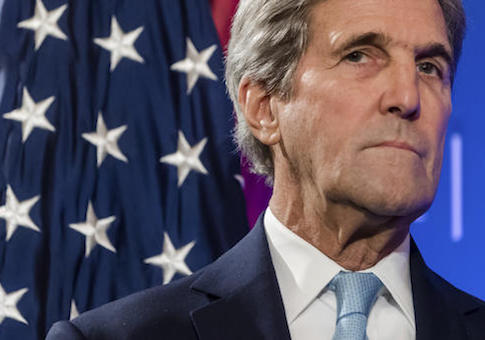Shortfalls in the State Department’s efforts to manage security threats at diplomatic posts abroad are putting American personnel at risk, according to a government watchdog.
American diplomatic personnel overseas have increasingly been attacked while traveling, with more than 100 attacks targeting U.S. personnel in transit since 1998. Several of those attacks have resulted in American deaths, including the 2004 murder of State Department official James Mollen in Iraq, who was shot dead in a vehicle outside the capital’s high-security "green zone."
Even so, the State Department has not done enough to reduce the risk of these attacks, according to a report from the Government Accountability Office published this week analyzing the agency’s management of transportation-related security risks to Americans at diplomatic posts.
"A variety of weaknesses in State’s implementation of its risk management activities continue to put U.S. personnel at risk," auditors wrote, despite steps the department has taken to improve security measures.
The watchdog reviewed how the State Department manages security risks to U.S. diplomatic personnel at the request of lawmakers on the House Committee on Foreign Affairs.
"This report flags security deficiencies that must be addressed immediately. These problems are especially concerning because many of the requirements have been in place and ignored for more than a decade," Rep. Ed Royce (R., Calif.), who chairs the committee, told the Washington Free Beacon on Thursday. Royce noted that the committee has "approved embassy security legislation to help keep American personnel safe."
In a year-long review of 26 diplomatic posts in higher-risk areas, auditors found "gaps" in the State Department’s guidance and monitoring of policies related to transportation security as well as "weaknesses" in transportation security training given to security officers and other staff at posts abroad.
The agency did not have required information about armored vehicles at some overseas posts, according to the report. As a result, several missions did not meet the minimum requirement of armored vehicles to protect American personnel during travel.
The GAO also found problems with the way the State Department communicates time-sensitive information about security risks to personnel. Auditors discovered instances where staffers at several posts were unaware of travel threats.
"At one of the posts we visited, the [regional security officer] sent a security notice restricting travel along a specific road and warning that recent violent protests in the area had resulted in injuries and even death, but because the notice was sent exclusively to state.gov email addresses, some non-State personnel at the post did not receive it at the email address they regularly used and were unaware of the restriction," auditors wrote.
"The personnel subsequently traveled through the restricted area, resulting in an embassy vehicle being attacked with rocks while on unauthorized travel through the area. While no one was hurt, the vehicle’s front windshield was smashed," they wrote.
Host nations are responsible for providing protection for American personnel and missions, but the secretary of state is charged with creating policies to make sure that U.S. diplomats and their families are safe overseas.
Much of the blame for shortcomings in the State Department’s management of transportation security risks to overseas outposts falls on the agency’s Bureau of Diplomatic Security, which is responsible for transportation security abroad.
The audit issued Tuesday was the public version of a sensitive report delivered to lawmakers and the State Department last month.
"While each of these shortcomings is of concern, in the aggregate, they raise questions about the adequacy of security for U.S. personnel and their families overseas," the GAO concluded. "Until it addresses these issues, State cannot be assured that the deadly threats U.S. personnel and their families may face while in transit overseas are being countered as effectively as possible."
The State Department concurred with all but one of the GAO’s recommendations to improve oversight of security efforts. The department did not respond to a question about whether the agency is confident in its efforts to manage security risks to U.S. diplomats abroad.
The security of diplomatic personnel has been a source of concern for years, particularly in the wake of the 2012 terrorist attack on the U.S. consulate in Benghazi, Libya, that killed four Americans, including U.S. Ambassador Chris Stevens.
Lawmakers convened a committee to examine whether to fault then-secretary of state Hillary Clinton or others in the Obama administration for the attack. In a lengthy report released earlier this year, the Republican-led committee blamed the State Department, CIA, and Pentagon for lapses in security at the Libyan outpost.
Over half of the most damaging attacks on American diplomatic personnel in the past three decades targeted individuals while they were traveling by motorcade, official vehicle, or other means.
